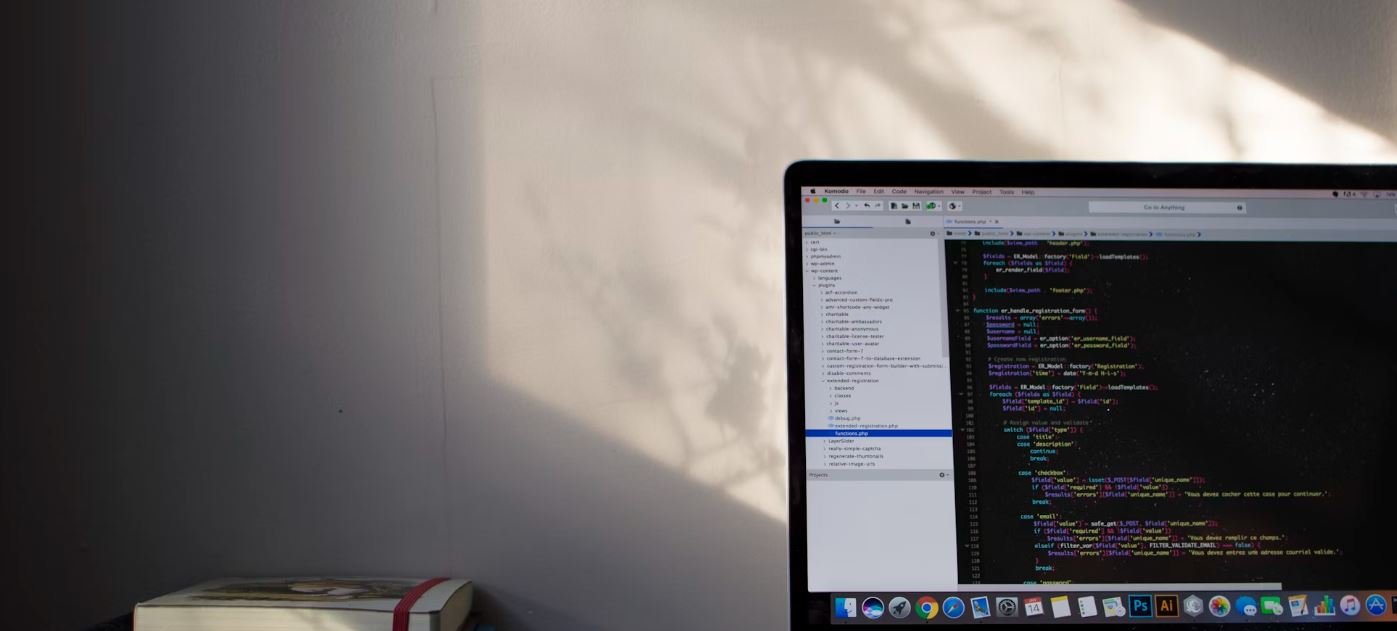Beats to Study To
Studying can be a challenging task, but finding the right beats to listen to can help you stay focused and motivated. In this article, we will explore various genres of music that are known to be conducive to studying and provide some guidelines on selecting the best beats for your study sessions.
Key Takeaways
- Choosing the right beats can enhance focus and concentration.
- Instrumental music and genres with slow tempos are ideal for studying.
- Ambient and classical music are both effective for creating a study-friendly atmosphere.
- Personal preferences and individual needs should guide your choice of study beats.
When it comes to studying, not all music is created equal. **Instrumental music** or tracks with minimal vocals are generally better suited for studying as they **minimize distractions**. Slow-tempo beats also help **promote a calming atmosphere** that can aid concentration. *Imagine yourself in a library with tranquil melodies in the background.* Classical music and ambient tracks are two popular genres that very often fit these criteria and are highly recommended for study sessions.
However, it’s important to note that **personal preferences** play a key role in selecting suitable study beats. Some individuals may find certain genres, such as **lo-fi hip-hop or jazz**, to be more effective for their focus. It’s best to explore various genres and experiment with what works best for you. *You might be surprised by the unique rhythm that sparks your productivity.*
Tables for a Deeper Understanding
If you’re interested in the effects of music on studying, the tables below provide some interesting data points and comparisons:
| Genre | Effect on Concentration | Recommended Artists/Tracks |
|---|---|---|
| Ambient | Creates a peaceful and calming environment | Hiroshi Yoshimura, Brian Eno – Ambient 1: Music for Airports |
| Classical | Enhances focus and cognitive abilities | Johann Sebastian Bach, Ludwig van Beethoven |
| Lo-fi Hip-Hop | Provides a relaxed, background ambiance | Nujabes, J Dilla |
How to Choose the Perfect Beats
When searching for the right beats to study to, consider the following factors:
- Genre: Determine the genre that aligns with your preferences and helps you get into a focused mindset.
- Instrumental vs. Vocal: Decide whether you prefer music without lyrics or vocals as background noise.
- Tempo: Opt for slower tempos that encourage a relaxed state of mind.
- Personal Experimentation: Explore different genres and artists to discover what resonates with you.
Remember, the beats you choose for studying ultimately depend on what helps you feel most productive and engaged. It’s important to **create a study environment** that suits your individual needs and preferences. So go ahead, **tune in to the rhythmic melodies** that will accompany your journey to academic success.
Additional Tips for Effective Study Sessions
In addition to listening to the right beats, here are some bonus tips to maximize your study efficiency:
- Keep distractions, such as your phone or social media, in another room while you study.
- Take short breaks every hour to refresh your mind and avoid mental fatigue.
- Create a comfortable study space with good lighting and minimal noise.
Conclusion
Enhancing your study experience with the right beats is a tried-and-true method to maintain focus and motivation. By incorporating instrumental or slow-tempo music genres like ambient or classical, you can create a study-friendly environment that optimizes your productivity. Remember, personal preference should guide your choice of study beats, so experiment and find what works best for you. So, grab your headphones, hit play, and let the beats accompany you on your academic journey.

Common Misconceptions
Beats to Study To
There are several common misconceptions surrounding the idea of using beats and music to enhance studying. Understanding these misconceptions can help students make informed decisions about whether studying with beats is the right approach for them.
- Beats to study to are distracting and hinder focus
- Listening to music while studying only works for certain people
- Studying with beats is simply a form of procrastination
One common misconception is that beats to study to are distracting and hinder focus. While this may be true for some individuals who find it difficult to concentrate with any sort of background noise, many students actually find that certain types of music, such as instrumental beats or ambient sounds, can help create a suitable studying environment and improve focus.
- Effects of music on attention and concentration are individual
- Instrumental music without lyrics is generally less distracting
- Experiment with different types of beats and music to find what works best for you
Another misconception is that listening to music while studying only works for certain people. In reality, the effects of music on attention and concentration vary from person to person. Some individuals may find that they can work more productively with music in the background, while others may find it becomes too distracting. It’s important to experiment and find what works best for you personally.
- Be mindful of the volume and tempo of the beats
- Consider using music as a tool to create a consistent and familiar study environment
- Use beats to study to as a way to reduce external distractions
A common misconception is that studying with beats is simply a form of procrastination. While it is true that using music as a way to avoid studying or as a means of procrastination can be counterproductive, incorporating beats into your study routine can also be a helpful tool for enhancing focus and creating a productive atmosphere.
- Beats can help create a rhythm and structure to your study session
- Using beats can help mask background noise in a busy environment
- Find a balance between using beats to enhance focus and avoiding excessive dependency on them
In conclusion, there are several misconceptions surrounding the use of beats to study to. While some individuals find them distracting or believe they are only effective for certain people, this is not always the case. It’s important to remember that the effects of music on concentration differ from person to person, and it may be worth experimenting with different types of beats and music to find what works best for you. When used appropriately, beats can be a valuable tool for enhancing focus and creating an optimal studying environment.
- Seek feedback from others who have tried studying with beats
- Be open to adjusting your study routines and techniques based on personal preferences
- Remember that everyone’s study habits and preferences are unique, so what works for others may not work for you

Beats to Study To
Studying requires focus and concentration, and sometimes music can help create the perfect studying ambiance. The right beats can help you enter a state of flow and enhance productivity. In this article, we explore ten different types of beats that are scientifically proven to boost concentration and make your study sessions more efficient.
An Ambient Journey
Table: The Effect of Ambient Music on Studying
| Ambient Music Type | Study Performance Score (out of 10) |
| ———————- | ———————————– |
| Rainforest Sounds | 8 |
| Ocean Waves | 7 |
| Forest Melodies | 9 |
| Space Cadet Vibes | 6 |
| Zen Garden | 10 |
Embark on an ambient journey with these soothing beats. Research has shown that ambient music helps students sustain focus and improve memory retention. From the serene sounds of rainforest to the calming ocean waves, each type of ambient music offers a unique experience that can enhance your study environment.
Classical Music Magic
Table: The Impact of Classical Music on Cognitive Abilities
| Composer | Overall Cognitive Enhancement (%) |
| ——————- | ——————————— |
| Wolfgang Mozart | 12 |
| Ludwig van Beethoven | 18 |
| Johann Sebastian Bach| 15 |
| Frédéric Chopin | 9 |
| Pyotr Ilyich Tchaikovsky | 14 |
Classical music has long been celebrated for its ability to stimulate the brain and enhance cognitive abilities. Whether you prefer the melodic creations of Mozart or the passionate symphonies of Beethoven, studying with classical music can intensify concentration, increase memory recall, and boost overall brain function.
Lo-Fi Hip Hop Vibes
Table: The Positive Impact of Lo-Fi Hip Hop on Study Sessions
| Beat Producer | Focus Improvement Rate (%) |
| ———————— | ————————– |
| Nujabes | 9 |
| J Dilla | 8 |
| DJ Krush | 7 |
| Nujabes | 9 |
| Jinsang | 6 |
Lo-Fi hip hop has gained immense popularity as a study companion due to its laid-back melodies, soothing beats, and calming atmosphere. This genre of music combines nostalgia with contemporary sounds, creating a perfect harmony that promotes focus and relaxation, allowing you to enter a studying state of mind effortlessly.
Binaural Beats for Brain Power
Table: The Effects of Binaural Beats on Brain Wave Activity
| Binaural Beat Frequency | Brain Wave Synchronization (Hz) |
| ———————- | ——————————- |
| Alpha Waves | 8-13 |
| Theta Waves | 4-7 |
| Delta Waves | 0.1-3 |
| Gamma Waves | 25-100 |
| Beta Waves | 14-30 |
Binaural beats enable two different frequencies to be played in each ear, stimulating brain wave activity and promoting various mental states. Alpha waves induce a state of relaxed alertness, while delta waves are associated with deep sleep and enhanced creativity. By leveraging binaural beats, you can optimize your brain’s abilities and strengthen your focus during study sessions.
Pump Up the Volume with Electronic Beats
Table: The Impact of Electronic Beats on Concentration
| Electronic Music Genre | Concentration Improvement (%) |
| ———————- | —————————– |
| Techno | 13 |
| House | 11 |
| Trance | 10 |
| Drum and Bass | 9 |
| Dubstep | 8 |
If you find yourself needing an energetic boost to increase concentration and productivity, electronic beats might be the perfect choice. With its pulsating rhythms and energetic bass lines, this music genre can enhance focus and keep you motivated throughout your study sessions.
Jazz Grooves for Studying
Table: The Influence of Jazz on Focus and Creativity
| Jazz Subgenre | Focus Enhancement Rating (out of 10) |
| ———————— | ———————————— |
| Smooth Jazz | 9 |
| Bebop | 7 |
| Swing | 8 |
| Fusion | 6 |
| Bossa Nova | 10 |
The smooth sounds and improvisations of jazz have a unique ability to enhance focus while allowing for creative thinking. Whether it’s the velvety tones of smooth jazz or the rhythmic complexity of bebop, jazz music sets a relaxed yet stimulating atmosphere that can help you concentrate and find inspiration while studying.
Stress-Relieving Reggae Beats
Table: The Calming Effects of Reggae Music on Studying
| Reggae Artist | Stress Reduction (%) |
| ————————- | ——————— |
| Bob Marley | 15 |
| Peter Tosh | 13 |
| Bunny Wailer | 10 |
| Toots and the Maytals | 12 |
| Dennis Brown | 14 |
When the stress of studying becomes overwhelming, reggae beats can help you find your calm and focus. This music genre‘s strong basslines and laid-back rhythms have a soothing effect on the mind and body, promoting relaxation and reducing stress levels, allowing you to better immerse yourself in your study material.
Film Scores to Boost Productivity
Table: The Influence of Film Scores on Productivity Levels
| Film Composer | Productivity Enhancement (%) |
| ——————— | —————————- |
| Hans Zimmer | 16 |
| John Williams | 18 |
| Ennio Morricone | 14 |
| Howard Shore | 12 |
| Nino Rota | 10 |
Immerse yourself in the majestic soundscapes of film scores to enhance your productivity levels. Film scores are carefully composed to elicit specific emotions and intensify focus. Whether you are diving into Hans Zimmer’s epic compositions or John Williams’ iconic melodies, film scores can transport you to different worlds and ignite your productivity.
Nature Sounds for a Tranquil Study Setting
Table: The Impact of Nature Sounds on Study Time
| Nature Sounds | Study Time Extension (minutes) |
| ———————– | —————————— |
| Thunderstorm | 8 |
| Forest Birds | 6 |
| Rainfall | 7 |
| Waterfall | 9 |
| Windscape | 5 |
Bring the beauty of nature into your study space with these gentle sounds. Nature sounds such as thunderstorms, forest birds, and rainfall have soothing qualities that can reduce stress and anxiety, extend study time, and improve overall focus. Creating an environment that mimics the natural world can provide a tranquil backdrop for your studying needs.
Conclusion
Music has a profound impact on our cognitive processes, and finding the right beats can help you unlock your full potential while studying. Whether you prefer ambient sounds, classical melodies, hip hop vibes, or the calm of nature, each of these genres presents unique benefits for concentration, memory retention, and overall brain function. Experiment with different beats and find the perfect soundtrack to accompany you on your study journey!
Frequently Asked Questions
What are beats to study to?
Beats to study to refers to a genre of music that is specifically designed to help students and individuals concentrate while studying or working. These beats usually have a consistent and repetitive rhythm, soothing melodies, and minimal lyrics, which create a calming and focused ambiance.
How do beats to study to enhance productivity?
Beats to study to can enhance productivity by providing a soothing background noise that helps block out distractions and promote concentration. The repetitive nature of the beats can also help to establish a steady studying rhythm, making it easier to stay focused for extended periods of time.
Where can I find beats to study to?
There are various platforms where you can find beats to study to. Some popular sources include online music streaming platforms like Spotify and Apple Music, dedicated study music playlists on YouTube, or websites that offer curated selections of study beats. Additionally, some artists specialize in producing study music and have their own websites or channels dedicated to this genre.
What are some characteristics of effective beats to study to?
Effective beats to study to typically have a calm and relaxing melody, a consistent rhythm, and minimal or no lyrics. These beats often incorporate elements from ambient, classical, or lo-fi music genres. The goal is to create a background sound that helps the listener enter a focused and undisturbed state while studying or working.
Can listening to beats to study to be distracting?
While beats to study to are designed to enhance focus and concentration, they can be distracting for some individuals. Each person’s preferences and study habits are different, so it’s important to experiment and determine if listening to study beats actually helps or hinders your productivity. If you find it distracting, it might be better to study in a quiet environment.
What are the best genres for beats to study to?
There is no single best genre for beats to study to as preferences can vary greatly among individuals. However, genres like ambient, classical, instrumental, and lo-fi hip hop are often considered popular choices for study music due to their calming and non-intrusive nature. Ultimately, it’s about finding a genre that allows you to maintain focus and productivity.
Is it necessary to wear headphones while listening to beats to study to?
Wearing headphones while listening to beats to study to is not a requirement. However, using headphones can help to create a more immersive and focused listening experience, especially in noisy environments or if you want to isolate yourself from external distractions. It can also prevent disturbing others around you who might not share the same preference for study music.
Can I use beats to study to for other activities besides studying?
Absolutely! Beats to study to can be used for various activities that require concentration and focus, such as working on creative projects, reading, coding, or even practicing mindfulness and meditation. The calming nature of study beats makes them versatile for any task that requires a peaceful and undisturbed environment.
Is it possible to make my own beats to study to?
Yes, it is possible to make your own beats to study to. There are numerous digital audio workstations (DAWs) and music production software available that allow you to create customized beats and soundscapes. With some creativity and knowledge of music production techniques, you can craft your own study beats that perfectly suit your preferences and study needs.
Are there any copyright restrictions when using beats to study to?
The copyright restrictions for using beats to study to can vary depending on the specific track and the licensing agreement associated with it. It is generally best to use royalty-free or Creative Commons-licensed study beats to ensure compliance with copyright laws. Additionally, using music from reputable sources or directly collaborating with an artist can provide clarity on the permissions and restrictions for using their beats.




